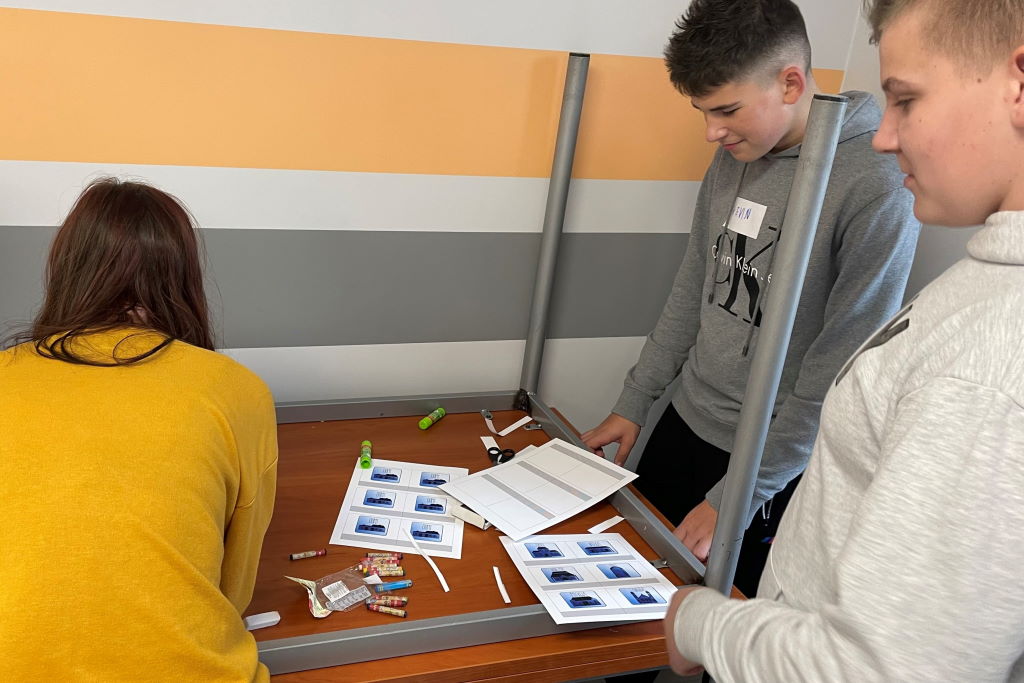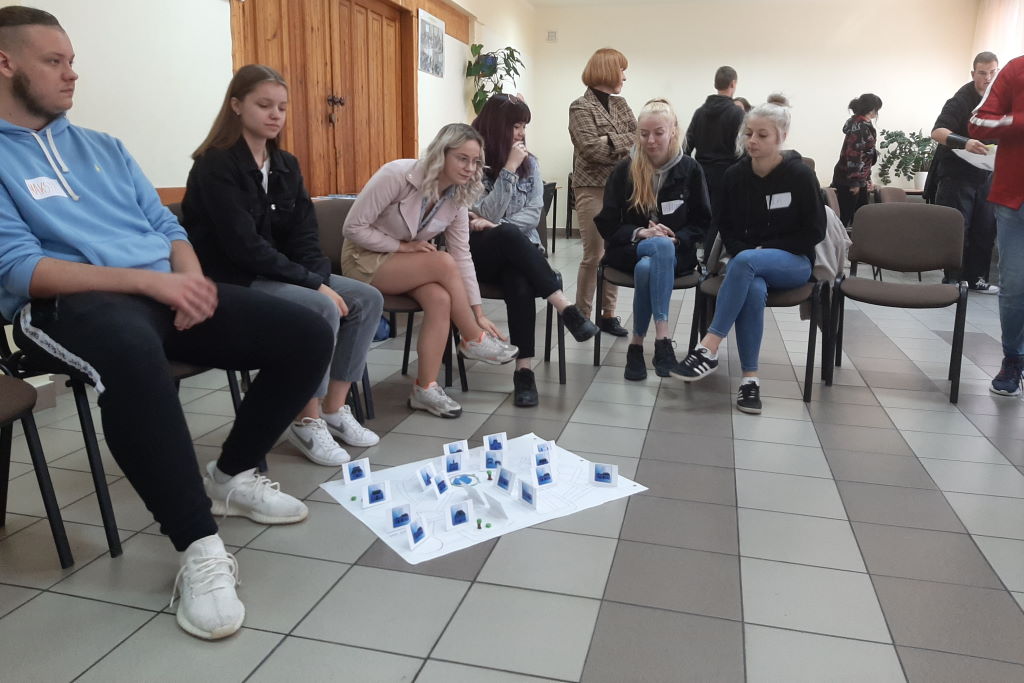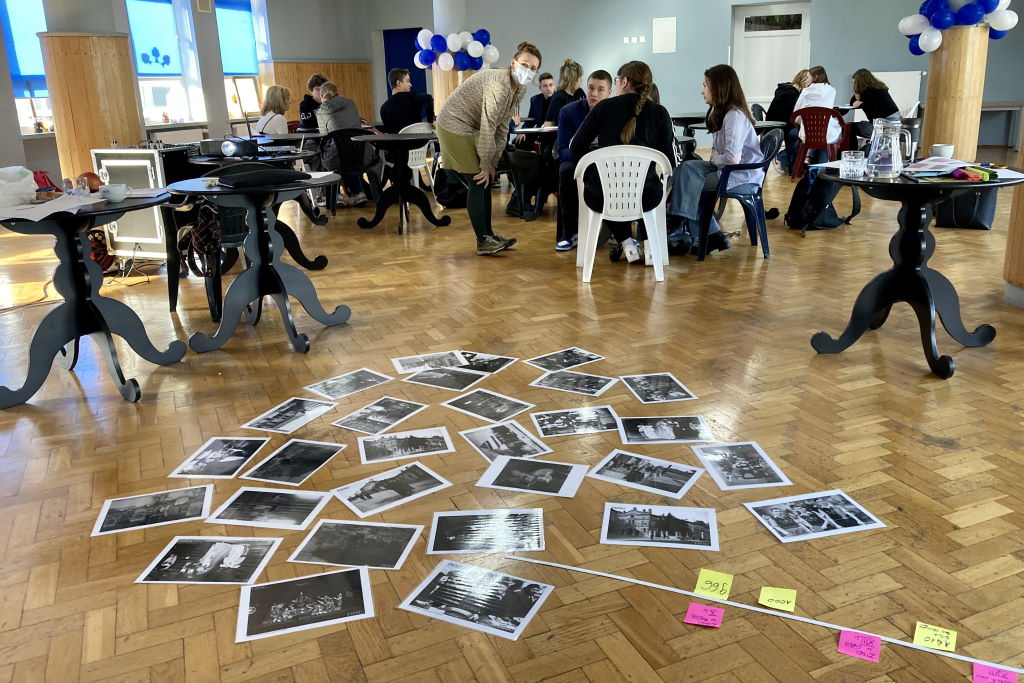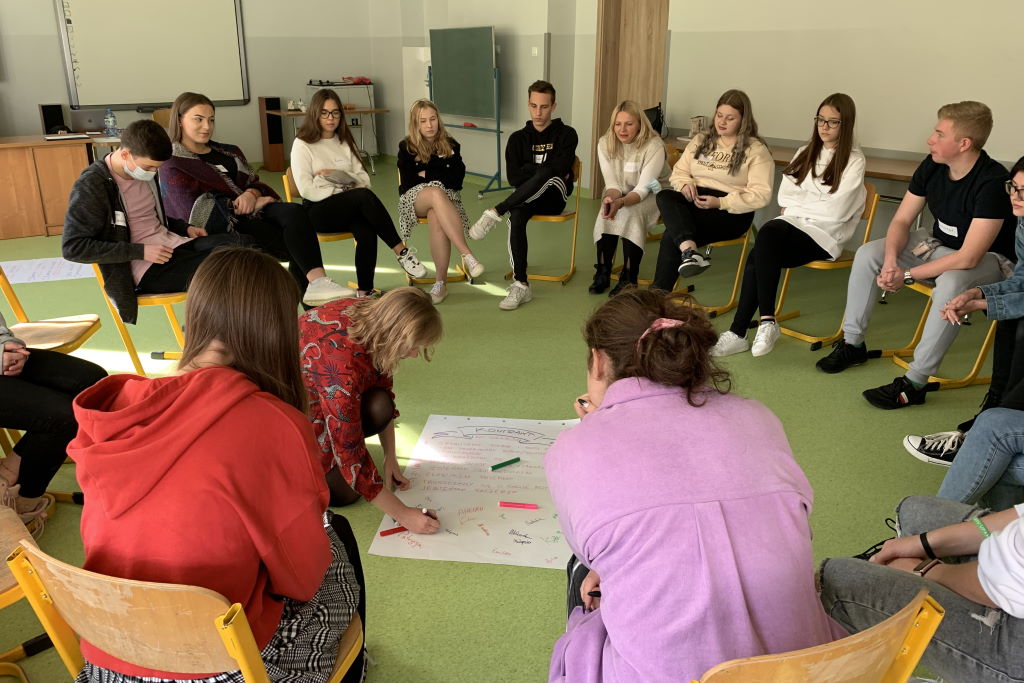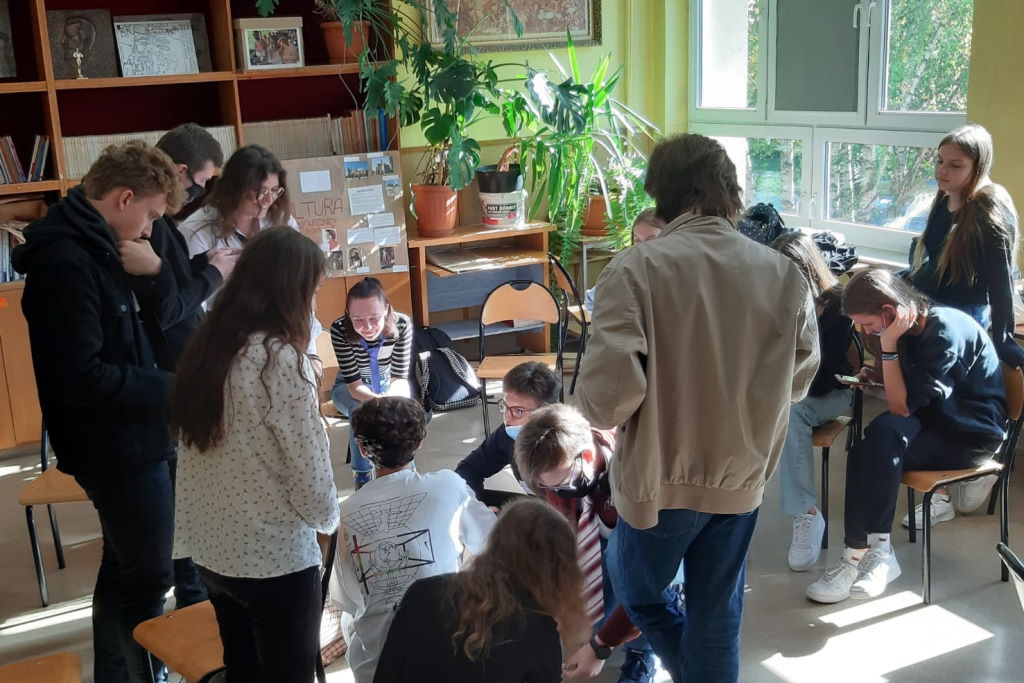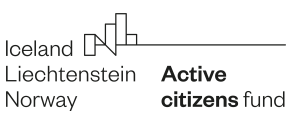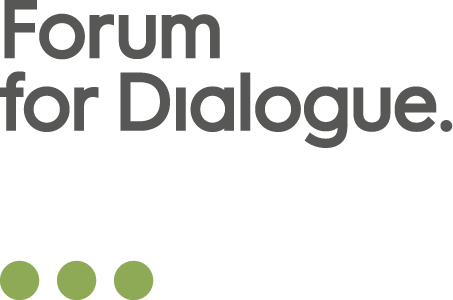After a challenging 2020, which required us to switch and adapt to remote learning, we launched the 2021 edition of School of Dialogue program equipped with new knowledge, many new experiences and inspirations, but also very much missing in-person interactions with students in their schools.
However, the pandemic reality had new challenges in store for us. Due to everchanging guidelines related to schools’ operation in COVID times, we also had to amend and adapt our own plans. Although along with our educators, the students and their teachers, we did our best to implement as many activities as possible in “live” format, our experience from the prior year also allowed us also to operate on remote basis in some exceptional cases. Despite all kinds of hurdles, 28 schools, 50 teachers and 523 students took on the challenge to commemorate their local Jewish communities in 2021.
Biała Podlaska, Biłgoraj, Bóbrka, Bydgoszcz, Ciechanów, Czersk, Dąbrowa Górnicza, Gidle, Kalisz, Koronowo, Kutno, Kadzidło, Mysłowice, Otwock, Ożarów, Płońsk, Rusiec, Rzeszów, Stąporków, Szamotuły, Świdnik, Tuczno, Warta, Wińsko, Włodawa, Wołomin, Zgorzelec, Zielonki – youth and teaching staff from these towns completed School of Dialogue projects in 2001. All schools participating in the initiative created a walking or virtual tour of their town’s Jewish sites. Preparing these routes allowed students to engage in proper research activities – they looked for historical sources, dug through local archives, interviewed Holocaust survivors and their descendants as well as members of the local community. Alongside this work, students often conducted cleanup works at local Jewish cemeteries, as was the case in Kutno, Koronowo and Ożarów, to name just a few examples. Additionally, School of Dialogue participants would often prepare additional projects and information campaigns.
For many School of Dialogue participants, working on the tour offered an opportunity to present Jewish history and culture to their own school community, as was the case in Zielonki, but often also to the wider public, like in Biała Podlaska, where students organized a performance in the town; in 7 locations relevant to local Jewish history, they served as live information points, holding up self-made plaques with information on each site’s significance.



